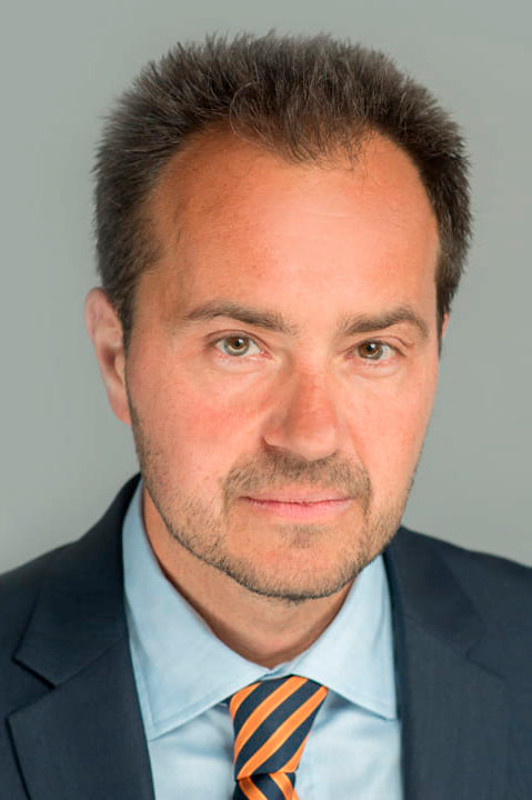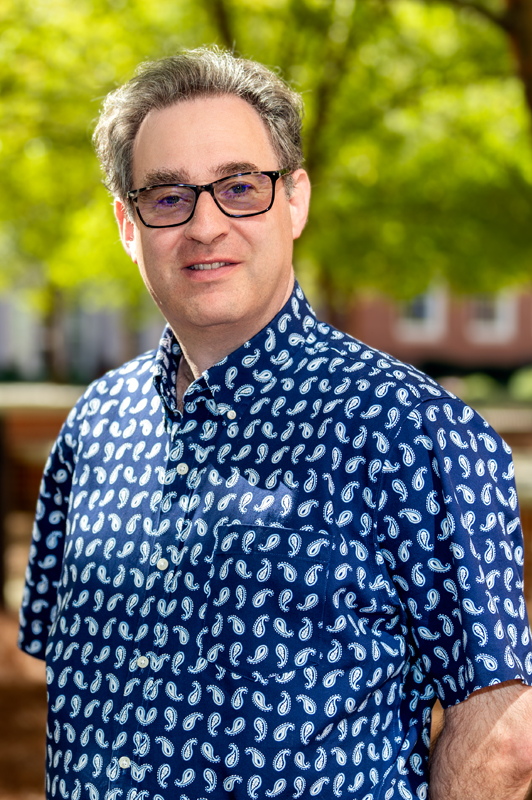Former NSA, U.S. Cyber Command leader visits engineering students, faculty
Published: Oct 31, 2022 2:00 PM
By Joe McAdory
Students and faculty in Auburn University’s Samuel Ginn College of Engineering filled the Brown-Kopel Center Grand Hall on Friday, Oct. 28, as Auburn graduate and former commander of the U.S. Cyber Command (USCYBERCOM) and director of the National Security Agency (NSA) Adm. Michael Rogers (USN Ret.) answered questions during an hour-long event.
Highlighting Cybersecurity Awareness Month, the event “Grand Challenges in Cybersecurity: A Discussion with Admiral Rogers” featured topics such as the future of cyber workforce development, personal cybersecurity, autonomous weaponry, how USCYBERCOM and the NSA were structured under his command and even his perspective on if cyberattacks on the homeland warranted a response compared to physical attacks.
“Cybersecurity Awareness Month is designed to remind us that even though we're very busy, we need to step back and ask ourselves, ‘What are the implications of cybersecurity in our day-to-day lives?’” said Rogers, who serves on the McCrary Institute for Cyber and Critical Infrastructure Security advisory board. “These amazing handheld digital devices we call phones… there's so much more than a phone here. Think about all these cyber systems we use that we take for granted like when we order something online. The way we're building business models for the economies of today and tomorrow, collecting large amounts of data, we need to make sure that data is appropriately protected, secured and stored.
“We must remind ourselves that there is not only an organizational responsibility, but there's a personal responsibility where we, as individuals, must become smarter about cyber, be aware of it daily and make smart decisions.”
The event was moderated by Frank Cilluffo, director of Auburn’s McCrary Institute for Cyber and Critical Infrastructure Security, and Daniel Tauritz, interim director and chief cyber strategist for the Auburn Cyber Research Center.
“We are so fortunate to have with us such an amazing, accomplished leader in Admiral Rodgers — someone who has been in every command post that is cyber-oriented. We are thrilled to have him on our advisory board and to have the opportunity to draw on his sage guidance and wisdom,” Cilluffo said.
Tauritz added, “This was a rare opportunity for students and faculty interested in cybersecurity to engage with a thought leader of Admiral Rogers’ stature, providing them with the bigger picture and connecting classroom learning and lab research with the operational complexity characteristic of the real world.”
Rogers, a Chicago native, earned a degree in personnel management in industrial relations (business) in in 1981. He believes that regardless of evolving technology, “hard-working men and women give us the competitive edge,” and shared strategies for building and efficiently maintaining a cyber workforce.
“I always encourage people who are starting on this path — there is a great opportunity out there and you are sorely needed,” he said, noting the massive cyber workforce shortfall. “But there is no single cookie-cutter approach. When I came into these jobs (USCYBERCOM and the NSA) in 2014, the thought process was to develop a common human capital strategy. I rejected that because, I wanted a broader set of experiences and perspectives. I want us to view cyber from multiple contexts. I want people with deep engineering and technical expertise, and I want people who bring a broader operational and policy perspective. It was our job to synchronize that range of expertise and experiences so we can bring them together as a team. That was the secret sauce for us.”
A uniform cyber workforce is one thing. An efficient one is equally as important, he added.
“The reality is we’re going to be in a mismatch between requirements and the level of resources with respect to human capital for years,” Rogers said. “This led me to the following conclusions. Number one: Do not come at me with strategies that are built around significantly increased numbers of people. Number two: Let’s maximize the application of technology. Number three: What are we doing to optimize the current workforce?
“Another thing that struck me when you’re trying to develop a human capital strategy is, ‘How do we partner with others who have the kinds of expertise and capacities we want?’ Don’t build strategies where it’s all about us. Build strategies around strong partnerships where we could potentially access some of their human capital so we don’t have to do it ourselves.”
Following the hour-long discussion, students lined up to meet with Rogers one-on-one. Some asking about career advice, others going deeper into the world of cyber.
“Visiting with students is a way for me to give back,” he said. “I love dealing with young adults who are in a different part of their life journeys than I am. I watched them, spoke with them, listened to their questions and realize that I can also learn a lot from them. Experience doesn't always equate to perfect knowledge. These students bring a positive intensity, enthusiasm, focus, commitment and a willingness to be part of a broader world.”
See here for a video recording of Rogers’ complete discussion.
Media Contact: , jem0040@auburn.edu, 334.844.3447
Admiral Michael Rogers, right, former NSA director and U.S. Cyber Command director, and Frank Cilluffo, director of the McCrary Institute for Cyber and Critical Infrastructure Security.



